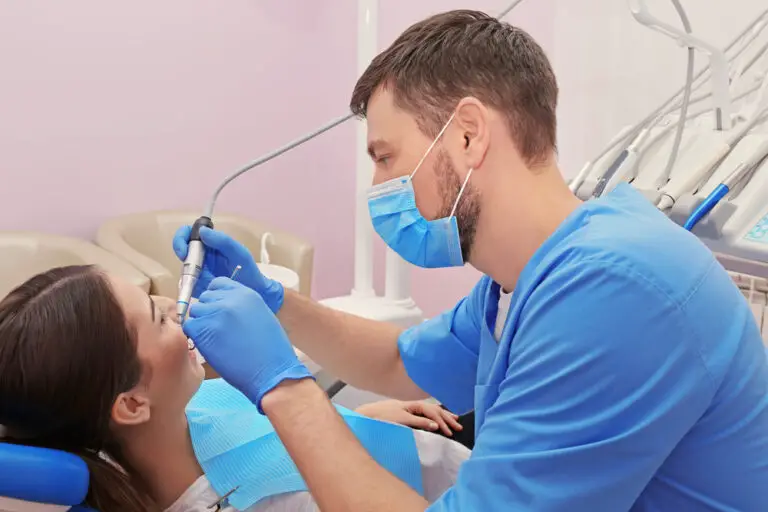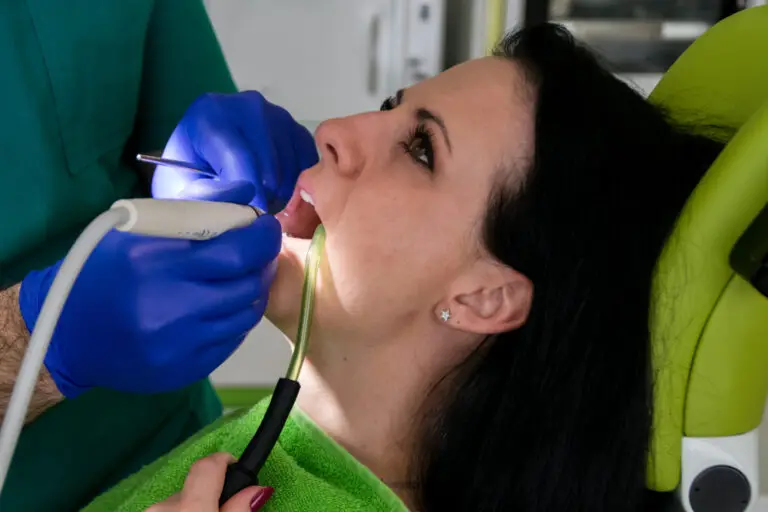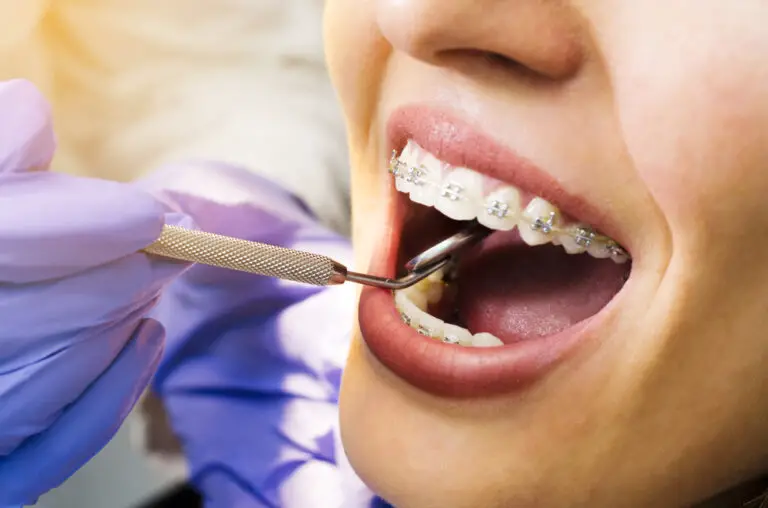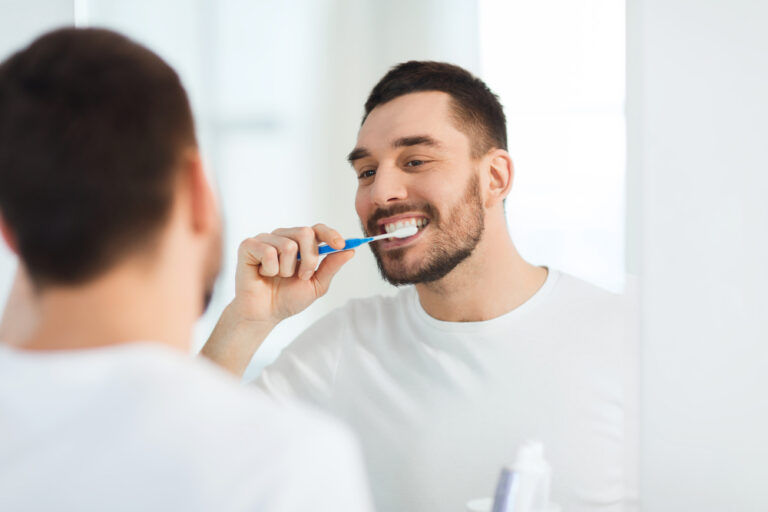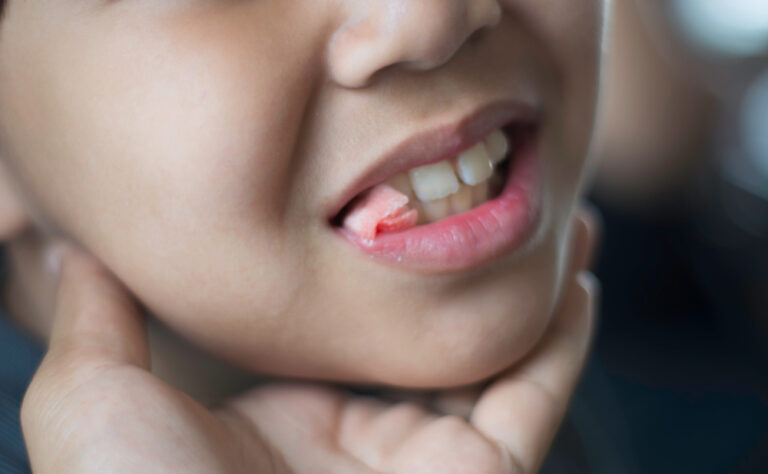When it comes to your dental health, there are many questions you may have about what is normal and what is not. One question that often arises is whether your teeth should be touching when your mouth is closed. The answer to this question may surprise you.
According to dental professionals, your teeth should not be touching when your mouth is closed and at rest. Instead, there should be a small gap between your upper and lower teeth. This gap is known as a freeway space and allows your jaw to relax and your muscles to rest. When your teeth are constantly touching, it can cause strain on your jaw joint, leading to discomfort and even pain.
So why do some people have their teeth touching when their mouth is closed? It could be due to a misaligned bite, also known as malocclusion. This can cause the teeth to come together in an unnatural way, leading to discomfort and other dental issues. If you are concerned about your bite or the position of your teeth, it is important to speak with a dental professional to determine the best course of action.
Understanding Teeth Positioning

When it comes to teeth positioning, it is important to maintain their natural resting position when the mouth is closed. This means that your teeth should be slightly apart or touching, depending on your individual bite.
Your lips should be relaxed and touching, rather than forced closed. If you have to force your lips closed, this could be a sign of misalignment.
It is also important to keep your tongue in the correct position. Your tongue should sit behind your top front teeth and touch the roof of your mouth in the standard resting position. This helps to maintain proper oral posture and prevent any potential issues such as gum problems, headaches, muscle pain, and jaw pain.
If your teeth are not in the correct position when resting, it can lead to a number of problems. For example, misaligned teeth can cause discomfort, difficulty chewing, and even speech problems. It can also lead to gum disease and tooth decay.
Proper oral posture means that your teeth are in the correct position when resting, with your lips relaxed and touching, your tongue in the correct position, and your jaw relaxed. By maintaining proper oral posture, you can help prevent any potential issues and maintain good oral health.
Importance of Proper Jaw Alignment
When it comes to dental health, proper jaw alignment is crucial. Not only does it affect the appearance of your face, but it can also have an impact on your speech, digestion, and overall well-being.
Impact on Speech
Your jaw plays a significant role in your ability to speak clearly. If your jaw is misaligned, it can affect your ability to pronounce certain sounds and words correctly. This can lead to speech impediments and difficulties communicating effectively with others.
Effect on Digestion
Proper jaw alignment is also important for proper digestion. When your teeth are not properly aligned, it can make it difficult to chew your food thoroughly. This can lead to digestive issues such as acid reflux, bloating, and stomach pain.
Influence on Facial Structure
Your jaw alignment can also have an impact on the structure of your face. When your teeth are not properly aligned, it can cause your jaw to shift, which can affect the overall appearance of your face. This can lead to issues with self-esteem and confidence.
Proper jaw alignment can help prevent these issues and improve your overall dental health. It is important to maintain good oral hygiene and visit your dentist regularly to ensure that your teeth and jaw are properly aligned.
Common Misconceptions About Teeth Touching

When it comes to the resting position of your teeth, there are many misconceptions that can lead to confusion and even harm. Here are some of the most common misconceptions about teeth touching:
Misconception 1: Teeth should always be touching
Many people believe that their teeth should always be touching, even when their mouth is closed and at rest. However, this is not true. In fact, your teeth should only touch when you are eating or speaking. When your mouth is closed and at rest, your teeth should be slightly apart.
Misconception 2: Teeth should never touch
On the other hand, some people believe that their teeth should never touch, even when they are eating or speaking. This is also not true. Your teeth should touch lightly when you are chewing food, but they should not be clenched together tightly.
Misconception 3: Teeth touching is the cause of all dental problems
While it is true that teeth grinding and clenching can cause dental problems, such as tooth wear and jaw pain, not all dental problems are caused by teeth touching. Gum disease, for example, is caused by bacteria that build up in the mouth and can lead to inflammation and damage to the gums.
Misconception 4: Everyone’s teeth should touch in the same way
Just as everyone’s teeth are unique, the way that they come together when you bite down is also unique. Some people have an overbite, where their upper teeth overlap their lower teeth, while others have an underbite, where their lower teeth overlap their upper teeth. As long as your teeth come together in a way that allows you to chew food comfortably and without pain, there is no need to worry about the specifics of how they touch.
By understanding these common misconceptions about teeth touching, you can better care for your oral health and avoid unnecessary worry or harm.
Signs Your Teeth Shouldn’t Be Touching
When you close your mouth, your teeth should come together in a comfortable, natural bite. However, if your teeth are constantly touching or grinding against each other, it may be a sign of a problem. Here are some signs that your teeth shouldn’t be touching:
- Pain or discomfort: If you experience pain or discomfort in your teeth or jaw when you bite down, it could be a sign that your teeth are not coming together properly. This could be due to a misaligned bite or other dental issues.
- Tooth wear: If your teeth are constantly touching, they may start to wear down over time. This can lead to sensitivity, cracks, or other dental problems.
- Headaches: Constantly grinding or clenching your teeth can cause tension headaches, especially in the temples or forehead.
- Jaw pain: If your teeth are constantly touching, it can put extra strain on your jaw muscles, leading to pain or discomfort.
If you experience any of these signs, it’s important to talk to your dentist. They can evaluate your bite and recommend treatment options, such as orthodontics or a dental splint, to help alleviate your symptoms and protect your dental health.
How to Maintain Proper Teeth Position

Maintaining proper teeth position is essential to prevent dental issues such as misalignment, grinding, and jaw pain. Here are some tips to help you maintain proper teeth position:
Regular Dental Check-Ups
Regular dental check-ups are crucial in maintaining proper teeth position. Your dentist can detect any dental issues early and provide the necessary treatment. During your dental check-up, your dentist will also check your teeth position and recommend any necessary orthodontic treatments.
Orthodontic Treatments
Orthodontic treatments such as braces or clear aligners can help correct misaligned teeth and maintain proper teeth position. Your orthodontist will create a customized treatment plan to address your specific dental issues and ensure proper teeth position.
Practicing Good Posture
Practicing good posture can also help maintain proper teeth position. When sitting or standing, keep your head up, shoulders back, and spine straight. Avoid slouching or hunching over, as this can cause misalignment and put pressure on your jaw.
In addition to these tips, it’s important to practice good oral hygiene by brushing and flossing regularly and avoiding habits such as teeth grinding or nail biting. By following these tips, you can maintain proper teeth position and prevent dental issues.
Frequently Asked Questions
What is the correct resting position for teeth?
The correct resting position for teeth is with the lips closed, the tongue resting behind the top front teeth, and the teeth slightly apart. This position helps to maintain proper alignment of the teeth and jaw.
Is it normal for teeth to hit each other when chewing?
Yes, it is normal for teeth to come into contact when chewing. However, if you experience pain or discomfort while chewing, or if your teeth are hitting each other excessively, it may be a sign of an underlying issue and you should consult with a dental professional.
What should I do if my bottom teeth hit the back of my top teeth?
If your bottom teeth hit the back of your top teeth, it may be a sign of an overbite or other dental issue. It is recommended that you consult with a dental professional to determine the cause and appropriate treatment options.
Should molars touch when biting down?
Ideally, the molars should come into contact when biting down to distribute the force evenly across the teeth. However, if you experience pain or discomfort while biting down, it may be a sign of an underlying issue and you should consult with a dental professional.
Should teeth touch when the mouth is closed?
When the mouth is closed, the teeth should be slightly apart, not touching. Constant contact between the teeth can lead to wear and tear, as well as other dental issues.
How can I tell if my teeth are too close together?
If your teeth feel crowded or if you have difficulty flossing between them, it may be a sign that your teeth are too close together. It is recommended that you consult with a dental professional to determine the best course of action.

